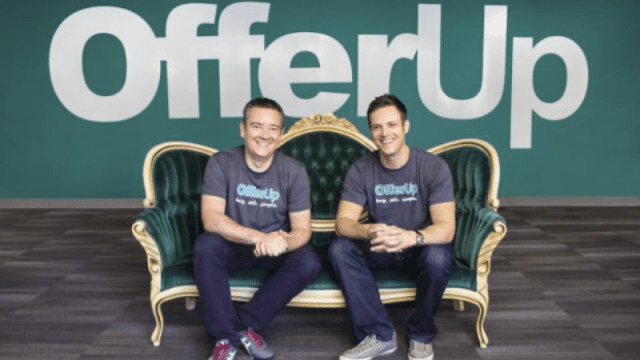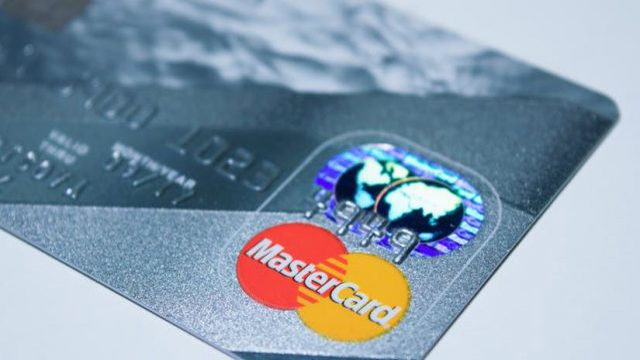Advertiser Disclosure
These Entrepreneurs Raised $221 Million To Beat Craigslist
Updated On November 2, 2021
Editorial Note: This content is based solely on the author's opinions and is not provided, approved, endorsed or reviewed by any financial institution or partner.

At the 2013 White House Correspondents Dinner, Conan O’Brien quipped that Matt Drudge, founder of the Drudge Report, was not in attendance because “he had a prior commitment to teach a web design class in 1997.”
Successful minimalist websites are a rarity, but Drudge Report (which generates more than 750 million page views per month) and Craigslist are two that have bucked the trend.
Founded in 1995 by Craig Newmark, Craigslist is the local classified advertisements website that generates over 50 billion page views per month – all without an iOS or Android app.
For years, Craigslist has been the go-to website to buy and sell used items online. Until now.
Enter Nick Huzar and Arean van Veelen.
They are the two young entrepreneurs behind OfferUp, the mobile-driven local marketplace that is disrupting the way that we buy and sell merchandise.
With over 33 million downloads and more than $14 billion in transactions, OfferUp is now the largest mobile marketplace in the U.S. Founded in 2011, the peer-to-peer commerce marketplace generated more transactions in less than five years than EBay North America had generated in its first 10 years.
“Since the smartphone was just starting to really permeate our everyday lives, we wanted to make the most seamless, user-friendly mobile app that makes buying and selling locally easier than ever,” van Veelen said.
With its headquarters in Bellevue, Washington, OfferUp enables users to buy and sell everything from furniture and electronics to cars and boats through its free mobile app. Users can conduct the entire transaction through their smart phone: snapping and uploading photos of an item to sell, adding a description and interacting with potential buyers. OfferUp is a national platform, but the goal is to buy and sell items within a user’s local community.
Buyers can then message sellers to meet, and then pay for items through the app or in person. Unlike EBay, OfferUp currently does not charge sellers a listing fee or transaction fee. To ensure a more trustworthy transaction, the marketplace has a verified identification system (which requires state-issued identification and Facebook profile), user profiles, buyer and seller ratings and in-app messaging.
Huzar, 39, serves as chief executive officer and van Veelen, 43, is chief technology officer. Prior to OfferUp, Huzar worked at Microsoft and T-Mobile and founded several start-ups. Van Veelen also worked at start-ups, including with Huzar at Konnects, a networking platform. Together, they oversee over 100 OfferUp employees.
In her 2016 Internet Trends report, Mary Meeker, a senior partner at venture firm Kleiner Perkins Caufield and Byers, wrote that OfferUp users spend an average of 25 minutes per day on the OfferUp app, which is the same amount of time users spend on Instagram and Snapchat (and more time than on both Pinterest and Twitter).
Huzar attributed the high level of engagement to OfferUp’s focus on a secure, frictionless user experience, an image-driven platform and the creation of a community built on personal connectivity.
The Investment Thesis: A Venture Capitalist Perspective
Great investments are built on a solid investment thesis.
Now valued at over $1 billion, OfferUp is no different.
How did venture capitalists view the investment opportunity?
The advent of the mobile revolution transformed the way in which people transact. Ask Jeff Jordan, a general partner at Andreessen Horowitz (an OfferUp investor), the former president of PayPal and the former president and chief executive officer of OpenTable. According to Jordan, as a mobile-first platform, OfferUp emerged as a disruptor by providing an improved user interface, frictionless experience and on-demand transactions from anywhere.
“Nick and Arean did a fantastic job rethinking what a smartphone could do to deliver an easier, faster and more enjoyable user experience for both buyers and sellers, which in turn has driven both liquidity and virality in the marketplace,” said Justin Sadrian, a managing director at Warburg Pincus, an OfferUp investor. “We have been one of the most active investors in marketplace businesses around the world, and rarely have we seen the scale, liquidity, virality and growth that OfferUp has demonstrated in a market this big.”
In the early 2000s, Craigslist disrupted the classified advertising market by converting newspaper readers to online users and thereby decimating the print media advertising model. Twenty years later, the smart phone is the new digital disruptor – and a major force in driving users from PC to mobile.
In this technology shift, Huzar and van Veelen saw massive opportunity, particularly as Craigslist did not adapt to the new mobile paradigm. As new fathers, they needed to sell their old belongings to make room for their newborns, but felt limited by the existing online options.
They created OfferUp to create a “simpler and more trusted way to buy and sell locally” – one in which users leverage the power and ease of their smart phone to take photos and then list and sell items in a more seamless way.
“I strongly believe OfferUp will surpass Craigslist and all other competitors as the go-to marketplace for the American consumer to buy and sell locally,” said Josh Breinlinger, an OfferUp board member and managing director at Jackson Square Ventures, which led OfferUp’s Series A financing round. “To achieve this, they need to continue growing consumer awareness, increase seller liquidity (percentage of items that sell), and continue to emphasize ease of use and trust for all users.”
OfferUp has raised over $221 million from some of the smartest minds in technology and finance, including one of its most recent investors, Max Levchin, co-founder of PayPal and co-founder and chief executive officer of Affirm.
“OfferUp is one the most exciting e-commerce companies I have come across in a long time,” Levchin said in a statement last November. “While consumer commerce continues to evolve in specific areas, it’s rare to have a company completely redefine the marketplace experience from start to finish. OfferUp is that type of company and it has been rewarded by a fiercely loyal and engaged user base, and explosive growth. I am excited to work with Nick, Arean and the team there to continue to usher in the era of mobile-driven local commerce.”
Other OfferUp investors include Coatue Management, Tiger Global, T. Rowe Price, Allen & Company, High Line Venture Partners, GGV Capital, Third Kind Capital, Altimeter Capital and Vy Capital, among others.
How Can You Make Money On OfferUp?
As a marketplace, OfferUp is not only positioned to help declutter your life, but it is also a monetization platform to convert unwanted items to extra cash.
Huzar and van Veelen focused intently on understanding the competitive landscape, consumer behavior and the economic backdrop to design a tech-enabled solution for its customer base.
According to a 2016 OfferUp and ClearVoice survey, OfferUp found that 48% of respondents consider their home to be cluttered with items they do not use, and 62% own more than 10 items they have not used in the past year. OfferUp also found that 46% of respondents find it difficult to meet their household expenses on time each month, and 50% have more than $1,000 in credit card debt.
Despite these statistics, 68% plan to donate their unneeded items, and more than one in eight people planned to throw them in the trash. Why? Respondents feel that it is easier to donate than sell, citing the required time investment and amount of work.
OfferUp is hoping technology will simplify the sale process and enable users to monetize the cash hiding in their home.
Some users use OfferUp to help grow their small businesses. Vance Lile, a Vancouver, Washington resident, owns an antique reselling businesses that he uses as a second source of income. Greg Theer of Tacoma, Washington uses OfferUp to sell his unique clock and garden sculpture creations to help fund his son’s college tuition.
Van Veelen sees the mobile trend continuing in 2018. “I think we’ll continue to see a shift towards mobile,” van Veelen said. “OfferUp was one of the first, truly mobile marketplaces and more and more experiences are going to continue to happen exclusively via smartphones.”
Top 3 Tips From OfferUp To Convert Your Items To Cash
Here are some pointers from OfferUp co-founder Arean van Veelen to maximize your profit:
- The top unused items in our homes are clothes and shoes (67%), games and toys (34%), electronics (33%), jewelry and accessories (22%) and kitchen supplies (18%).
- OfferUp has a very visual interface so the quality of your photos can impact how many offers you receive. Take photos of your item from all angles so that buyers can get a feel for the size and dimensions of the item you are selling.
- Unsure about a selling price? Rather than specify a price, sellers can also list their item as “not firm on price,” which means buyers are able to chat and negotiate with sellers before deciding on a price.



